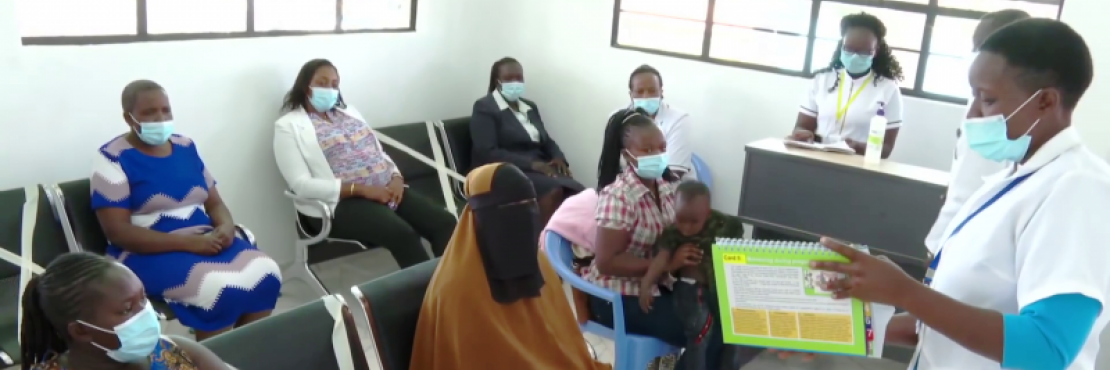Assessing both the barriers and factors contributing to the success of healthcare initiatives in Africa can provide crucial lessons for the implementation of future healthcare programs.
Scholars from University of Toronto Scarborough at the Global Health & Innovation Lab have released a series of reports assessing the conditions that make or break healthcare initiatives in African countries, and providing guidance for the successful rollout and scaling of such initiatives, looking at examples such as maternal health programs, vaccination programs, and health technology. A further article examined scaling up social franchises relating to food security.
Department of Health and Society scholars Obidimma Ezezika, Thomas Lear, Meron Mengistu, Fatema Motiwala, and Chareena Varatharajan examined a number of healthcare initiatives across multiple African countries, and conducted interviews with project partners, leaders, and other key individuals involved on their experiences.
“Every scientist, engineer, politician, and entrepreneur experiences the ‘delivery gap’ at one time or another,” said Ezezika, who works at the nexus of global health and implementation science as the Principal Investigator of the Global Health & Innovation Lab at the University of Toronto Scarborough. “The importance of these research studies reveals critical lessons for scaling health initiatives. It also highlights that knowing what works is no guarantee care will reach the people it’s intended for, and more is needed to close the delivery gap in global health initiatives.”
In an article entitled “Implementation of the Meningitis Vaccine Project in Africa: Lessons for Vaccine Implementation Programs,” the authors assess the implementation of the Meningitis Vaccine Project (MVP), a project funded by the Bill and Melinda Gates Foundation and carried out by the World Health Organization in partnership with the Program for Appropriate Technology in Health. This program provided meningitis vaccines in 22 African countries, and enjoyed great success. The authors of the study pinpoints advocacy from African leaders of the MVP as crucial to the success of the program.
In “Barriers to Scaling Health Technologies in Sub-Saharan Africa: Lessons from Ethiopia, Nigeria, and Rwanda,” the authors examine the barriers that exist to the scaling up of health technologies in three African countries. Barriers identified include inadequate availability and accessibility of health equipment, inadequate policies and gaps in policy effectiveness, lack of financial resources, unavailability of health personnel and expertise, insufficient understanding and infrastructure to effectively scale-up, and lack of community and user integration with the technology. According to Fatema Motiwala, a co-author of this article, “The results of this qualitative study also creates a narrative on how health technologies can be most effectively scaled in sub-Saharan Africa.”
A further article, “The Implementation of a Maternal mHealth Project in South Africa: Lessons for Taking mHealth Innovations to Scale,” examines South Africa’s MomConnect program, a text messaging service that extended the supports provided at health facilities to provide pregnant, postnatal, and baby care information to women. The study found strong strategic partnerships and coordination across partner levels, as well as cost-effective technology and sustainable funding measures, adequate adaptation of the innovation to local and national settings, and guiding mHealth policy and legislation frameworks, all helped to support the initiative.
Another study, “Do Women Empowerment Indicators Predict Receipt of Quality Antenatal Care in Cameroon? Evidence from a Nationwide Survey,” explored the connection between the success of antenatal care in Cameroon with empowerment indicators for women. The study has pointed to the need for multifaceted approaches aimed at enhancing the knowledge base of women, in collaboration with the Ministry of Public Health.
A final study examines the challenge of enhancing food security and livelihoods for smallholder farmers. In “Scaling Social Franchises: Lessons Learned from Farm Shop,” the authors assess Farm Shop, a social franchise with a network of 74 agricultural input shops seeking to reduce food insecurity through improving productivity, incomes and food security of smallholder Kenyan farmers. The report found that the success of social franchisors is dependent on economies of scale and building trust with local farmers.
For more information contact David Blackwood, Research Communications Coordinator, Department of Health and Society, University of Toronto Scarborough: David.Blackwood@utoronto.ca
Photo by Njoki Ngari licensed under CC-BY-SA 4.0
